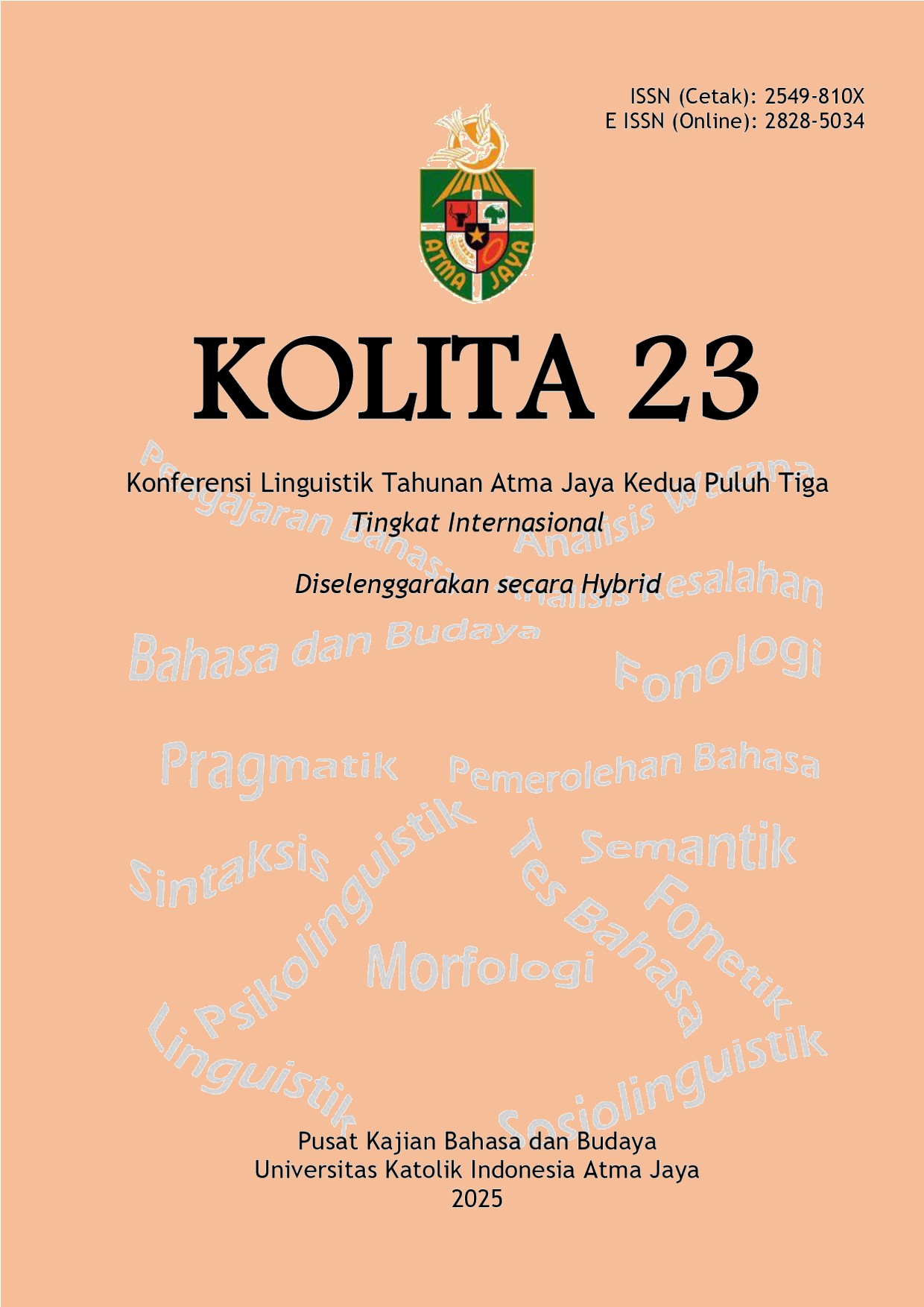NAMING F&B BUSINESS IN MARGONDA DEPOK: WORD FORMATION STUDY
DOI:
https://doi.org/10.25170/kolita.v23i23.7166Abstract
The linguistic landscape of public spaces in Depok, particularly along Margonda Street as the central of Depok city, reflects considerable language diversity. Language, functioning as signage, is utilized across various public domains, including streets, open areas, public facilities, and commercial establishments such as coffee shops and food courts. This study specifically investigates the naming practices of food and beverage (F&B) businesses in the Margonda area of Depok. The primary aim is to analyze the linguistic units and word-formation processes employed in these commercial names. One illustrative example is the brand name Hypnotea, which is formed through blending, combining the words hypnotize and tea. This process demonstrates how morphological strategies contribute to the creation of concise and memorable brand identities. This research adopts a qualitative descriptive approach, employing observational methods to collect data without direct interference from the researchers. A total of 10 F&B brand names were examined, revealing two principal types of linguistic units: single words and phrases. The analysis identified several word-formation processes, including blending, borrowing, clipping, onomatopoeia, and reduplication. Among these, reduplication emerged as the most frequently occurring process, accounting for approximately 40% of the data. The findings suggest that effective brand naming strategies tend to use formal and timeless lexical choices, which are more likely to achieve long-term recognition and appeal. In contrast, names based on informal language, slang, or gimmicks may lack lasting impact. The study concludes by recommending future research on other sectors within the F&B industry, such as noodle brands, to further enhance the understanding of linguistic practices in commercial naming within urban Indonesian contexts.






